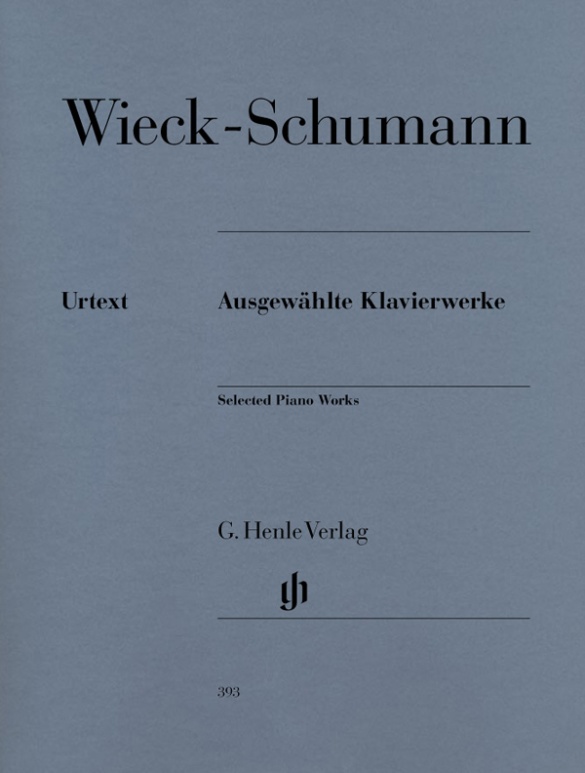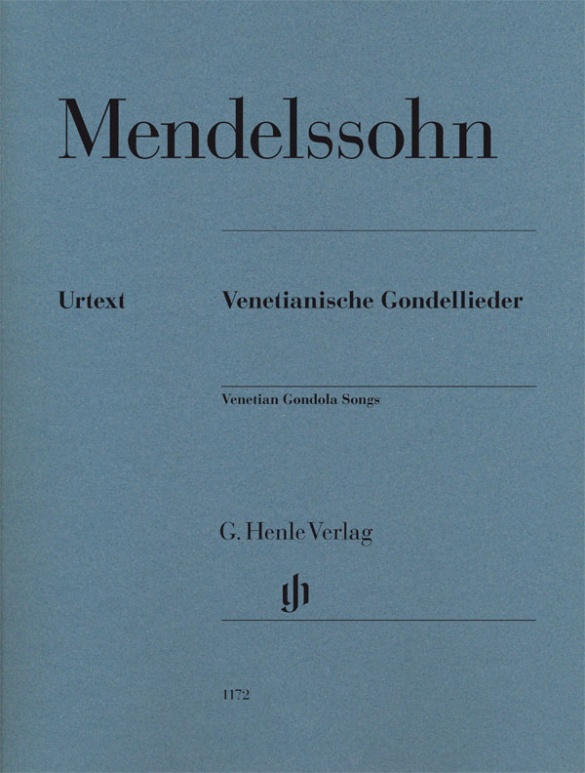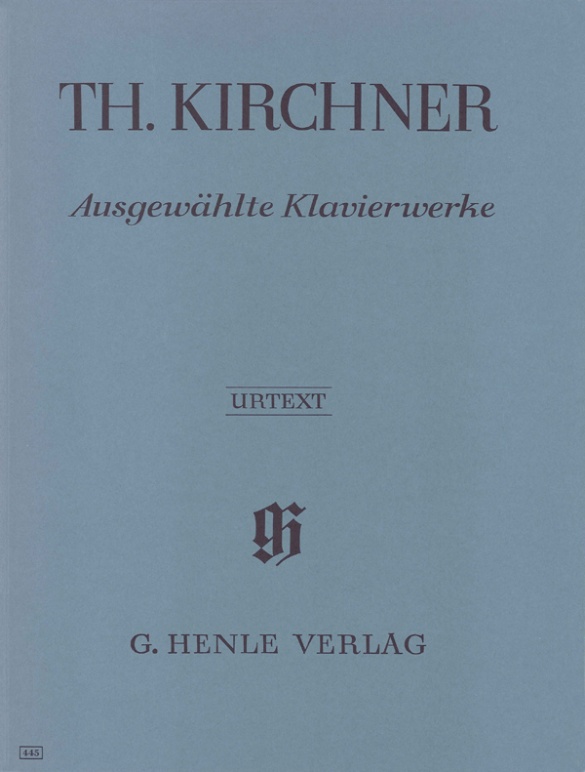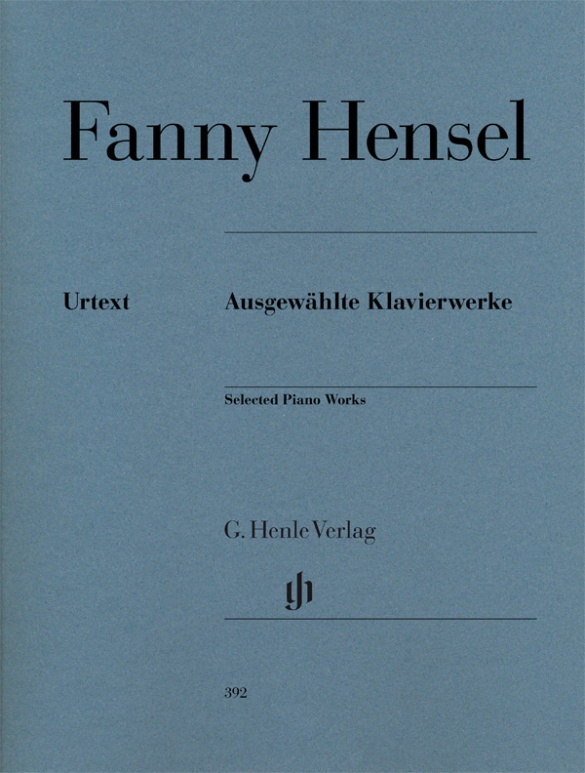

Fanny Hensel
Selected Piano Works
Fanny Hensel, Felix Mendelssohn Bartholdy’s sister, wrote music throughout her life. She originally published her songs and piano pieces under her brother’s name, but soon began to use her own name instead, confiding to her diary that “I cannot deny that the joy I derive in publishing my own music also increases my good humour”. Luckily for us, her great-granddaughter Fanny Kistner-Hensel gave G. Henle Verlag access to a previously unpublished selection of 11 piano pieces, and edited them herself from the autographs. After some early pieces focussing on piano instruction there follows a chronological sequence of personal character pieces such as the Notturno in g minor and “Abschied von Rom” [Departure from Rome], composed from the mid-1830s.
Content/Details
About the Composer
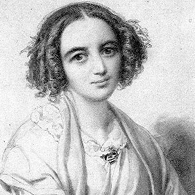
Fanny Hensel
This composer and pianist left behind a substantial oeuvre of around 460 compositions, predominantly songs and compositions for piano as well as several works of chamber music, choral music, cantatas, and an overture. Within the private milieu of the salons held in her parents’ home, she performed (and conducted) her compositions herself; they are in no way inferior to those of her brother Felix Mendelssohn Bartholdy.
| 1805 | Born in Hamburg on November 14, the eldest child of the banker Abraham Mendelssohn. |
| 1811 | Moves to Berlin. |
| 1816 | The children are baptized in the Evangelical Reformed church. Piano instruction from Marie Bigot during a stay in Paris, from Ludwig Berger in Berlin. |
| 1819 | Lessons in composition from Carl Friedrich Zelter, together with Felix; composition of songs. |
| 1820 | Joins the Sing-Akademie, led by Zelter, along with Felix and their younger sister Rebecka. |
| 1821 | First, partly public Sunday concerts take place in the Mendelssohn household. Fanny performs as pianist, later as conductor and composer. From 1831 she assumes leadership of them. |
| from 1825 | Anonymous publication of her own compositions; the songs “Das Heimweh” (1824), “Italien” (1825), and “Suleika and Hatem” (1825) are published in the volumes of her brother’s Op. 8 (1827), “Sehnsucht” (1827), “Verlust” (1828), and “Die Nonne” (1822) in that of his Op. 9 (1830). |
| 1829 | She marries the Royal Prussian court painter Wilhelm Hensel. |
| 1830 | Birth of their only son, Sebastian Ludwig Felix. Cantatas: “Lobgesang” (dedicated to her son), “Hiob” (“Job”) and “Choleramusik” (1831), “Zum Fest der heiligen Cäcilia” (1833). |
| 1831/32 | Concert aria, “Hero und Leander.” |
| 1838 | Offering of the Piano Concerto No. 1 by Felix, her only known public performance. |
| 1841 | Piano cycle “Das Jahr” (“The Year”) with pictures by her husband. |
| 1843 | Piano Sonata in G minor, which engages with Beethoven’s works. |
| 1846 | Publication of the “Six Songs for Solo Voice and Piano,” Op. 1, as the first songs published under her own name. “Four Songs for the Piano,” Op. 2, Op. 6 (1847), Op. 8 (1850), counterpart to Felix’s Songs Without Words, with bolder harmonies and greater in scale. |
| 1847 | Death in Berlin on May 14 from a stroke during rehearsals for a Sunday concert. |
About the Authors
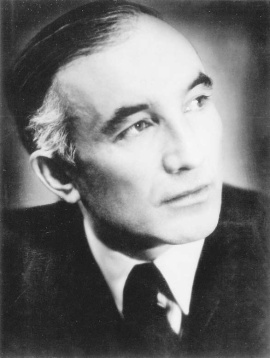
Hans-Martin Theopold (Fingering)
Prof. Hans-Martin Theopold, was born to a pastor’s family in Detmold on 22 April 1904, the youngest of five children. Even as a child he often played the organ in the “Marktkirche” and soon began to take piano lessons with Theodor Vehmeier. At the age of 17 he made his debut at the Landestheater in Detmold with Ludwig van Beethoven’s Piano Concerto in C major under Friedrich Quast (Herford). Following the successful completion of his schooling at the Gymnasium Leopoldinum in Detmold, he went on to study music and piano (main subject): from 1922–23 at the “Württembergische Hochschule für Musik” in Stuttgart (with Max Pauer, 1866–1945) and then from 1923–1928 at the “Staatliche Akademische Hochschule für Musik” in Berlin-Charlottenburg (with Richard Rössler, 1880–1962, and Waldemar Lütschg, 1877–1948). After completing his piano studies (graduating with “very good”) in 1928, he began an active solo career both at home and abroad (USA, Switzerland, Scandinavia, the Baltic states, the Balkans). As a member of the Chamber Music Association of the State Opera in Berlin (from 1933) he also gave countless chamber music concerts, including ones with his violin partner Gustav Havemann (1882–1960).
In the 1930s, audiences and the press alike raved about Theopold’s extraordinary gifts as a pianist: “This young player has it in him to soon become one of the best players in Germany. A superior technique, a wonderful singing piano tone, the strength of a Titan, but not at all hard due to the incomparably gentle elasticity of his touch” [Münchener Zeitung, 21 November 1933]. – “H.M. Theopold gave convincing proof of his splendid pianistic ability in an extremely gripping sonata with a modern idiom by Alban Berg, but predominantly in Schubert’s […] Wanderer Fantasy, which he played with a polished technique and creative power” [Weser-Zeitung, 21 December 1932]. Theopold was awarded several prizes, including the “Grotrian-Steinweg-Preis” in 1928.
In 1937 Theopold became a teacher for the piano (main subject) at the “Bayerisches Staatskonservatorium der Musik” in Würzburg. In 1939 he married Irene Tatjana Wülfing, who was from Moscow. From 1943 he became head of the piano master-class at the “Nordische Musikschule” in Bremen, although this was interrupted by the events of the war. Following his return from a prisoner of war camp, Theopold gave concerts and taught although he did not hold a permanent position. From 1955–1956 he was acting head of the piano master-class at the “Bergisches Landeskonservatorium” in Wuppertal, finally being appointed Professor for Piano on 1 April 1956 at the “Staatliches Institut für Schul- und Volksmusik” in Detmold, later at the “Nordwestdeutsche Musikakademie Detmold” (today “Hochschule für Musik Detmold”), where he taught for decades. On 30 September 1969 he retired. “His students extol his pedagogical gifts. […] Humour, charm, helpfulness and kind-heartedness moderate the strictness of his professional ethos as a musician and teacher” (Lippische Rundschau, 23 April 1969; see also: Lippische Landeszeitung 22 April 1969 on the occasion of Theopold’s 65. birthday: “Prof. Theopold, a modest but at the same time energetic man, is an enthusiastic teacher”). Theopold died in Detmold in 2000.
Contact with Günter Henle was established directly after the publishing house was founded, when Theopold thanked the publishers with great enthusiasm for its first Urtext editions. His extensive correspondence with the publishing house was bequeathed to the Lippische Landesbibliothek in 2014 to ensure its long-term accessibility to the public. The letters testify not only to Theopold’s great interest in musical sources and text questions but also to his initial strict refusal (!) of fingerings in text-critical editions such as these: “For fingerings are and remain something individual no matter what their quality” (letter to Günter Henle from 26 May 1949 {publishing house archives}). Günter Henle was not, however, to be swayed and stressed the necessity of fingerings in his Urtext editions: “It is better to publish the Urtext […] with fingerings that are not necessary for a few individuals, or that might even, I admit, be considered irritating here and there” (letter to Hans-Martin Theopold of 17 September 1953).
It was only in 1955 that Theopold accepted Günter Henle’s offer of contributing fingerings for an Urtext edition that was in the process of being prepared by way of trial. (HN 74, Schubert, Complete Dances for Piano, Volume 1). Following this, Theopold was commissioned to write the fingerings for nearly all of the publishing house’s new editions in quick succession. Günter Henle, himself a good pianist, greatly valued Theopold’s fingerings, and also the many suggestions regarding the musical text in question. In addition, Theopold was always very reliable, thorough and conscientious – something that is not unimportant with editorial work!
Thus to date Hans-Martin Theopold has provided the fingerings for the greatest number of Henle Urtext editions by far – 226 editions (!) in total.
We would like to thank Mrs Margot Theopold and the Hochschule für Musik in Detmold for their great support in providing biographical material.
G. Henle Verlag
Product Safety Informations (GPSR)

G. Henle Verlag
Here you can find the information about the manufacturer of the product.G. Henle Verlag e.K.
Forstenrieder Allee 122
81476 München
Germany
info@henle.de
www.henle.com
recommendations
autogenerated_cross_selling
Further editions of this title
Further editions of this title


